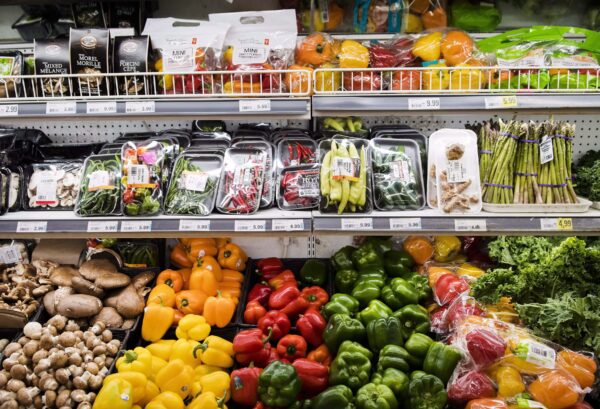
Commentary
A recently released report from the Canadian Competition Bureau confirms what grocers have been saying all along: There is no “greedflation” happening in the retail food market and profit margins for retailers are low.
And although the bureau did note that consumers would be better served if there were more competitors in the retail food market, it pointedly omitted any mention of Canada’s anti-competitive supply management system in dairy, poultry, and eggs which for decades has been increasing the price of food staples in Canada.
If the federal government truly wants to reduce the cost of food for Canadian families, it should examine ways to end the supply management system rather than demonize food retailers operating on slim profit margins, while threatening them with windfall taxes.
In Canada, it is illegal to produce and sell dairy, chicken, turkey, or egg products without a government-issued quota. The allowances are jealously guarded by producers and the amount of production allowed is strictly controlled.
Many Canadians were shocked when a dairy farmer posted a video of thousands of litres of fresh milk being dumped down the drain on his farm last winter. He had produced more than he was legally allowed to sell so he had to discard the excess. He couldn’t even donate the extra milk to local food banks. Canadian dairy producers dump as much as 300 million litres of milk down the drain every year under a system designed to artificially keep product prices high. What an insult to families struggling to pay their grocery bills.
Canada’s dairy and poultry organizations are very influential lobbyists. Politicians of every stripe avoid talking about supply management policies at all costs. To question Canada’s supply management system is to risk losing precious votes in Quebec, where most of the dairy operations put aside dollars dedicated to campaigning against re-electing those who contravene the political covenant.
While dairy producers like to plead poverty, the numbers tell a different tale. Profit margins for Canadian dairy farmers sit around 24 percent, making it one of the most lucrative industries in the nation. Of course, it’s not hard to maintain high margins when the competition has literally been made illegal and prices fixed.
If any other industries manipulated prices like the dairy and poultry organizations do, the Competition Bureau would intervene and break up the cartels. With supply management however, the silence is deafening.
Studies indicate that supply management costs the average family an extra $300 to $444 per year on their grocery bill even before the pandemic and current inflation rates. While ending supply management wouldn’t fix every inflationary challenge, an extra $500 or so to spend on groceries would be very welcome for many struggling families.
Canada is one of the last nations on earth to maintain a quota system for food production. Most of the others were Soviet countries and those ended when the Soviet Union fell apart in the 1990s. Venezuela has a rigid supply management system which has served its citizens terribly.
Australia and New Zealand were among the last of the developed nations to end their supply management systems. Producers in those countries claimed that ending the system would kill their industries. Instead, dairy and other previously supply-managed industries blossomed when the free market opened up.
Supply management hinders innovation and efficiency. There is little incentive to improve production practices or diversify products when there is a guaranteed income and protection from competition. If the market was opened up, Canada could see a boom of new, local, and creative producers.
Supply management indirectly hinders Canadian consumers and exporters during international trade negotiations as other nations object to protectionism and market manipulation.
Proponents of supply management try to claim the policies protect the family farm. That is false. Currently, there are about 12,000 dairy farms in Canada; that is less than a tenth of what there were before supply management entered the picture. Supply management centralizes production around large operations and marginalizes small producers who can’t afford quotas.
Yes, some quotas would need to be bought out as the system is phased out. It won’t get any cheaper for waiting though, and let’s face it, the quotas are a fake asset created by the government.
Canada has some of the most abundant and productive agricultural land on the planet and should be paying among the lowest prices for food in the world. Instead, consumers pay a premium on essential food items to prop up a relatively small number of supply-managed producers.
If the Competition Bureau wants to live up to its name and take on cartels that are robbing Canadian consumers, it should take on Canadian supply management policies.
The excuses for maintaining the system run thin and Canadian families are paying the price.
Views expressed in this article are the opinions of the author and do not necessarily reflect the views of The Epoch Times.
















































